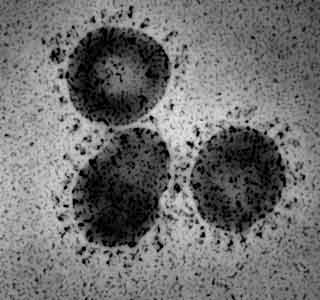
But now a team of researchers have seemingly discovered a way of stopping SARS infection. They have stated that an algae protein may aid in preventing this infection. An analysis on animal models is believed to have yielded positive results. This research was led by Christine Wohlford-Lenane, senior research assistant at the Department of Pediatrics University of Iowa.
These researchers discovered that treating mice with the algae protein seemingly gave them a 100 percent survival rate in comparison to the 30 percent survival rate of the untreated mice. The algae protein that was alleged to have this efficiency against SARS infection is apparently called the Griffithsin (GRFT).
The GRFT is stated to be a lectin protein which is derived from algae. It is presumed that the GRFT, through its anti-viral properties may modify the structure of the sugar molecules bordering the virus. This process is hypothesized to permit these molecules to cling on to the human cells and attack them. There, these molecules seemingly occupy the reproductive system to spread throughout the body. It was noted that these molecules may not be able to spread the disease without undergoing this entire mechanism.
Wohlford-Lenane says that, “While preliminary, these results are very exciting and indicate a possible therapeutic approach to future SARS or other coronaviral outbreaks.â€
An analysis on animal models is believed to have indicated that the GRFT untreated mice had 20-times greater plaque-forming units of virus as compared to the treated ones. On exposure to the SARS virus, it was noticed that the lungs of the untreated mice showed severe damage in comparison to the lungs of the treated mice. Also greater disease-related weight loss was noticed in the untreated mice.
These researchers say that the findings not only hint at GRFT’s capability to stop virus replication, but they even suggest that it may also evade other causal effects of the disease.
This research is alleged to have been presented at the American Thoracic Society’s 105th International Conference, San Diego.
